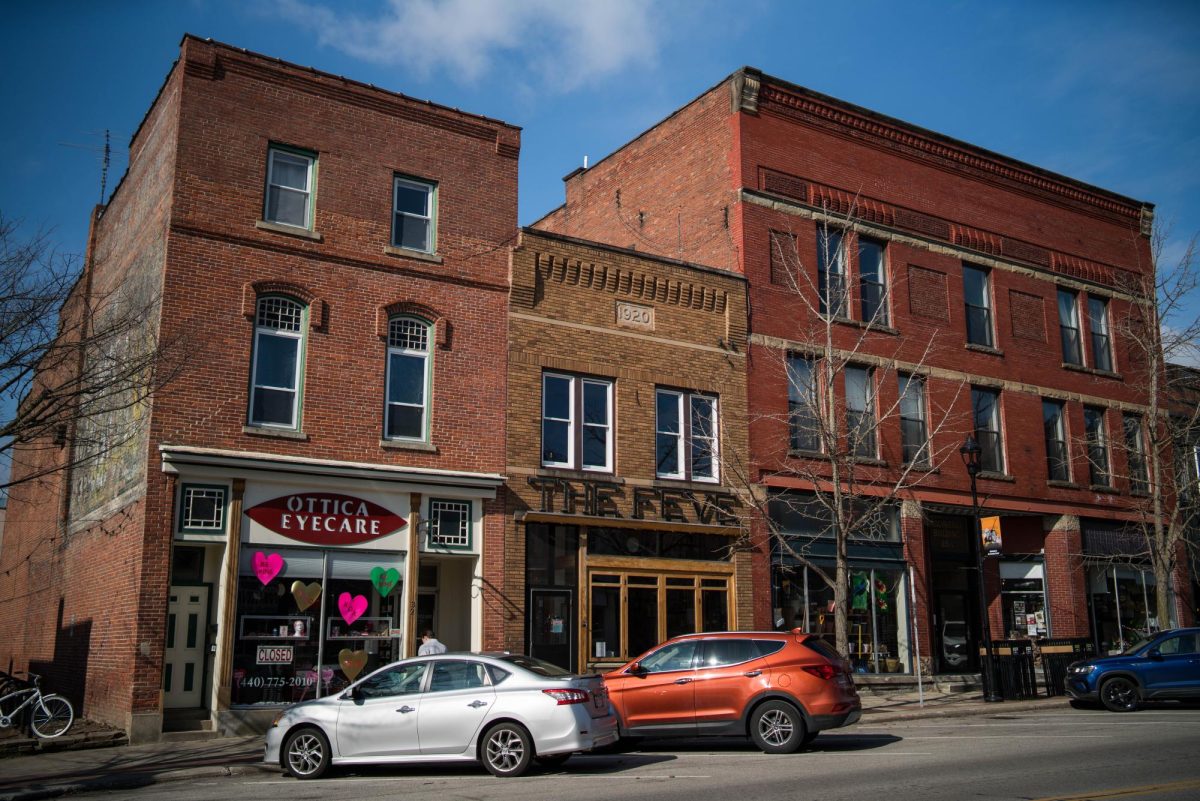Starting Winter Term, Azariah’s Café — a hub of student activity, studying, and socializing — stopped accepting almost all in-person orders. The infamous long line disappeared, and the cafe’s ordering system transitioned fully online.
Azzie’s is a branch of Goldberry Roasting Company and has become a popular spot to grab drinks or a meal and study. The shift to all-mobile ordering followed a hybrid system in the fall semester consisting of both in-person and mobile ordering.
This new change does not work well for everyone. According to College fourth-year Annie Crocker, who has worked at Azzie’s since spring 2022, the shift to fully mobile ordering has led to longer wait times, often stretching over an hour, increased food waste, and the elimination of positive social interaction between workers and students.
Sarirose Hyldahl, AVI director of operations, explained that AVI is involved in a several years-long transition that began in 2022 to install mobile ordering at all of their retail locations on campus. She said the changes were designed to accommodate short time frames and busy student schedules, and to alleviate long lines, which led to safety, egress, and accessibility concerns. According to Hyldahl, lines for the Rathskeller, which has also been converted to fully mobile ordering, would sometimes lead out of Wilder Hall and into the street.
Hyldahl explained that the mobile ordering system utilizes Transact, the app used for Oberlin’s card and door system. The point of sales system used by AVI needed to be updated, and Transact Mobile was brought on by Oberlin and AVI as the solution.
Hyldahl is not entirely satisfied with Transact’s system, which she describes as “clunky.”
“It is far from perfect,” Hyldahl said. “I wish it [could] do some things that it cannot.”
Hyldahl also added that there are issues with Transact’s software, but that changes to the app are difficult because Transact is a large company that services many universities. Hyldahl noted that she is “always trying new ways to better the system” because she loves food service.
Assistant Vice President and Dean of Residence Life and Auxiliary Services Mark Zeno explained that AVI and Transact are two separate companies that Oberlin has a contract with. Oberlin College provides a kitchen and access to everything that may be needed and gives AVI an annual contracted stipend for campus food. He also mentioned that AVI was chosen over the former food service Oberlin was contracted with based on input from students and staff.
Zeno said that there is also an advisory team made up of faculty, staff, and students who meet with AVI.
He believes the new mobile ordering system has made a positive impact.
“I think that it has actually been going really well, based on what the staff over at the Rat have reported,” Zeno said. “Mobile ordering, which we’ve seen in the public sector … with people ordering online and getting pickups and all that, seems to be more efficient.”
However, Crocker pointed out that Azzie’s is very different from the Rathskeller.
“We keep getting compared to the Rat, but the Rat is a fundamentally different type of dining hall than us,” Crocker said. “The Rat is bulk-made, like a burger that you can just put in a warmer and it’ll be good in an hour. But a latte has a very short shelf life. Our avocado toast has basically no shelf life.”
College second-year Neve Kelley, who has worked at Azzie’s since spring 2023, pointed out the high amounts of food waste with the new system. She explained that because of the long wait time with mobile ordering, many students don’t come to get their drinks. After 90 minutes, they get thrown out.
Kelley feels that one of the biggest losses of the new system is the lack of human interaction with customers.
“Azzie’s is a café,” Kelley said. “I feel like it was crafted as a social environment and that’s what most cafes are. With this new mobile ordering system, there’s still seating around and it’s still a social environment, but a big part of that social interaction is social interaction with the baristas.”
Crocker seconded this. She feels that the move to mobile ordering has changed how customers treat the workers.
“The lack of human interaction has been kind of terrible, to be honest,” Crocker said. “We don’t talk to customers anymore. Customers are a lot ruder to us now. Literally someone … accidentally knocked over a drink on the pickup table in front of me one day, made eye contact with me, and walked away. … And that’s not the atmosphere that Azzie’s has always been.”
Azzie’s employees aren’t the only ones sharing frustration with the all-mobile system. College first-year Ingrid Alva Belcher frequently goes to Azzie’s and empathizes with the workers.
“I think that getting to talk to the barista making your drink is a really nice experience,” Belcher said. “I used to work at a cafe and have been on both sides of the interaction, and honestly it’s part of what makes going to a cafe something to look forward to — the employees aren’t robots, and I miss the human element.”
When Azzie’s first switched to fully mobile, tickets would print as they were sent in, resulting in large pile-ups of orders. Now, 15 tickets print every 20 minutes. This gives the baristas more time to make the drinks, but also means that students have to order their drinks well in advance.
“There’s still a super long line, arguably a longer line than there was before,” Kelley said. “It’s just virtual now.”
Kelley expressed hope for the return to a hybrid system
Crocker said that the change to mobile ordering is causing many employees to quit, or consider quitting.
“We all kind of got into this job because we like customer service and we like talking to people,” Kelley said. “The interaction before used to feel like a student-to-student connection. And now, … it feels like we’re just working in our own little bubble, and it feels more like working for the students rather than working with the students.”
Hyldahl said that Oberlin would not terminate Transact’s mobile ordering system because it would require contracting with a new company, which would lead to a long and difficult transition.








